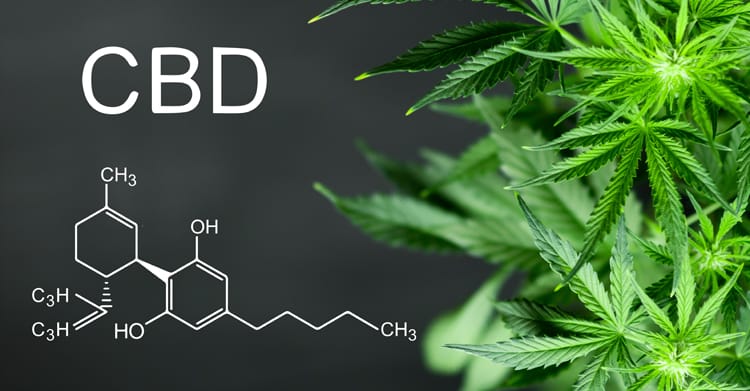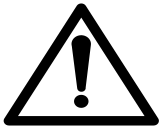What is CBD? Quick Guide to Cannabidiol
What is CBD? Is CBD Marijuana? Does CBD get you high? Is CBD safe? Will I pass a drug test? CBD is so new to science and American culture in general that there are still a lot of questions when it comes to this cannabinoid.
CBD Definition
CBD is short for Cannabidiol which is one of the many Cannabinoids in the Cannabis plant. CBD found in the Cannabis plant is 100% natural. Our brain has receptors known as the CB1 and CB2 receptors which are responsible for accepting CBD and other Cannabinoids into our bodies.
A Brief History of CBD
The history of CBD goes back as far as the 1940s when chemist Roger Adams became the first person to successfully extract CBD from a cannabis plant.
The next key player in the emergence of CBD was Dr. Raphael Mechoulam who, in 1963, described the chemical structure of CBD. Interestingly, Mechoulam was inspired to explore the relationship of CBD to the cannabis plant, as he saw parallels between cannabis and opium, from which morphine had been successfully extracted.
In 2012, CBD got another major public exposure: Charlotte Figi, a six-year-old from Colorado who suffered from Dravet Syndrome (a severe epileptic disorder affecting children) demonstrated the true value and importance of CBD as a health aid when she began taking CBD oil to alleviate her seizures. The entire nation was drawn into her personal drama, rooting for her all the way. And all of America cheered ecstatically when it was reported that Charlotte’s grand mal seizures immediately plummeted from about 300 per week to only two or three a month!
How CBD Works
Our bodies are marvelous and complex with a variety of subsystems in constant operation to keep us alive and thriving. One of those important subsystems is the endocannabinoid system (so named because it was discovered while researching cannabis compounds and how they interact with the human body).
In brief, our endocannabinoid system impacts and influences such key bodily functions as appetite, memory, mood, and sleep. As researchers delve deeper into our endocannabinoid system, expect more important and valuable information to rise to the surface.
The endocannabinoid system is composed of three elements:
- Endocannabinoids – support the body by maintaining internal functionality
- Enzymes – two different enzymes can break down the endocannabinoids for distribution
- Receptors – are strategically located throughout the body and bind to endocannabinoids
As the receptors are the key connectors between bodily functions and cannabinoids, they play a major role. These receptors can be one of two types:
- CB1 – resides mainly in the central nervous system; helps to manage and govern key functions including:
- Appetite
- Coordination
- Memory
- Mood
- Movement
- Pain
- CB2 – resides in the peripheral nervous system, which influences inflammation and pain
While not fully understood, researchers have determined that, unlike most other cannabinoids, CBD does not directly bind to either of these receptors. Instead, CBD appears to hold influence over them in ways not yet fully understood.
As research continues, expect more exciting and life-changing discoveries to be revealed. Simply put, CBD is an amazing cannabinoid whose properties and powers we still do not fully grasp.
Potential Health Benefits of CBD
CBD has been studied for its potential therapeutic effects and may offer several health benefits. However, it’s important to note that research is still ongoing, and CBD should not be considered a cure-all. Here are some potential benefits that have been investigated:
- Acne Treatments – its soothing properties work in tandem with its ability to limit the sebum production that causes acne
- Addiction Management – getting off opioids is never easy (and sometimes proving fatal) but those who look to CBD find breaking addictions more manageable
- Appetite Booster – sometimes relieving other symptoms like anxiety and depression may help but CBD appears to kick appetites into full gear
- Bone Support – as we age, weakening bones can be a problem but consumers of CBD are learning that CBD may help keep bones stronger into the senior years
- Cancer Treatments – many cancer treatments result in extremely unpleasant side effects, such as nausea; CBD has delivered relief to many patients in chemotherapy
- Depression – because it can be such a vague and indefinable feeling, depression can feel omnipresent; often taking CBD can lift spirits and ease those oppressive senses
- Ease Anxiety – public speaking is perhaps one of the most stress-inducing events for most people but speakers feel less anxiety when using CBD prior to their appearance
- Lower Blood Pressure – when blood pressure is reduced to normal rates, there is less stress on the heart, keeping it healthier
- Pain Relief – not only can everyday ailments gain relief with CBD but those suffering from arthritis and multiple sclerosis have experienced much-desired relief through CBD
- Sedation – when used with other cannabinoids like CBG, CBD appears to create calmer and more relaxed states that are conducive to more complete sleep sessions
It’s important to note that while CBD shows promise, further research is needed to fully understand its potential benefits, optimal dosages, and long-term effects. It’s always advisable to consult with a healthcare professional before using CBD or any other supplements, especially if you have underlying health conditions or are taking other medications.
Will CBD Get Me High?
CBD is non-psychoactive, meaning that it will not get you high the way it’s cousin THC does. Many people do report a “relaxed” feeling when ingesting CBD. So especially when trying it for the 1st time it is a good idea to be at home or somewhere that you don’t have to leave until the next day. Although most people don’t report feeling impaired at all everyone is different and it is better to error on the side of caution when taking anything new into your body.
Will I pass a Drug Test if I use CBD Products?
This is one of the biggest questions on peoples minds who have a job that doesn’t allow Marijuana. The short answer is maybe.
Your best bet is to use a CBD isolate from a trusted extraction facility. Isolates are supposed to remove all other cannabinoids except the CBD. That is why they call it an isolate, because it isolates the CBD from the other chemical compounds.
Smokeable flower is a little more questionable because it will have small amounts of THC. Not enough to get you high but possibly enough to show up on a drug test. Especially if the flower you are smoking is above the legal hemp limit. Make sure your product comes from a trusted farm and is tested by a reputable lab.
What Does CBD Have To Do With Hemp?
The legal definition of hemp is any cannabis plant under 0.3% THC. All legal CBD comes from the hemp plant. When you buy a full spectrum CBD product it would be more accurate to say that you are buying a full spectrum hemp product as you are getting the full cannabinoid and terpene profile of the hemp plant.
Is CBD Safe?
We are not legally able to really comment on this but we can say that we never hear negative effects due to CBD. The most people ever report is being lightheaded or getting a headache. This is usually a result of lower quality CBD flower.

